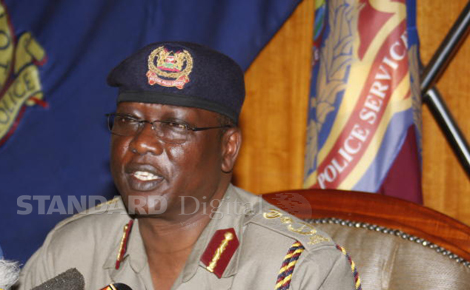×
The Standard e-Paper
Fearless, Trusted News
 |
| Inspector General of Police David Kimaiyo. |
LAMU COUNTY: Frustrated residents ended their two-day protests against a three-month curfew that has crippled activities on the island by invoking an ancient Islamic curse against the Government.
As Muslim clerics led the prayers in Lamu town, a defiant Inspector General of Police David Kimaiyo ruled out any possibility of lifting the dusk-to-dawn curfew